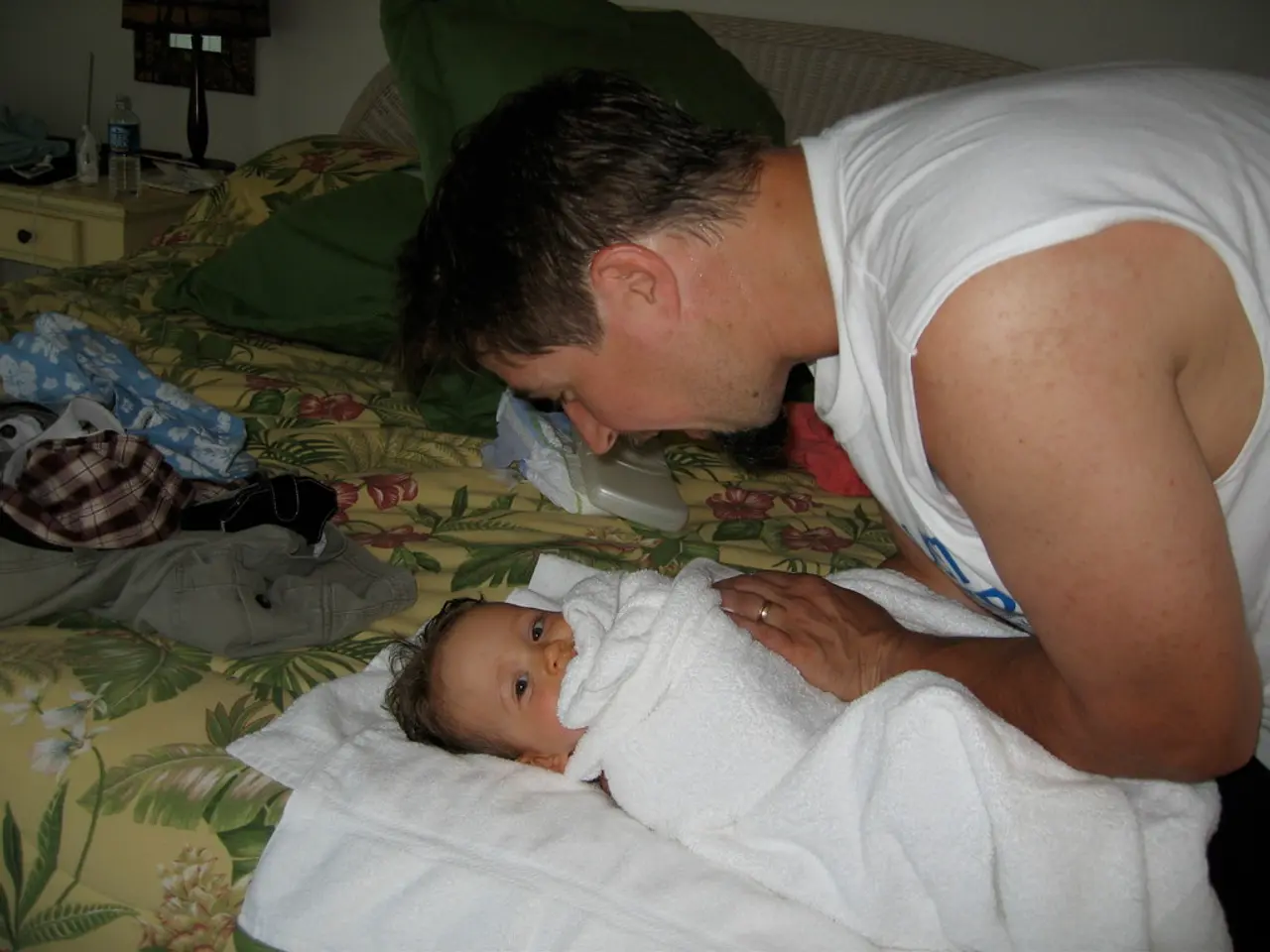Strategies for Preventing Nappy Rash: Advice for Parents in Nigeria
In the hot and humid climate of Nigeria, preventing diaper rash requires special attention to hygiene, clothing, and the use of appropriate creams. Here's a comprehensive guide to help parents navigate this challenge.
**Frequent Diaper Changes**
Changing diapers often is crucial to prevent moisture from accumulating and causing irritation. In a humid climate, it's essential to change diapers more frequently than usual, especially during solids introduction. Clean the diaper area with fragrance-free wipes to avoid any irritation.
**Dry the Diaper Area**
After cleaning the diaper area, pat it dry to remove any moisture. This helps prevent bacterial and fungal growth.
**Dress in Breathable Clothing**
Dress your baby in lightweight, breathable cotton clothes to reduce heat buildup and prevent heat rashes.
**Use Protective Creams**
Apply a thin layer of zinc oxide-based creams or natural barrier balms to protect the skin from moisture and irritation. Products like the Baby Protection Balm from Ancestral Cosmetics, which use natural ingredients, can help create a protective barrier without harsh chemicals.
**Monitor for Heat Rashes**
In a hot climate, babies are more prone to heat rashes. Monitor for signs such as red bumps or splotches and address them promptly.
**Use Home Remedies (Optional)**
Applying a cool compress can help soothe irritated skin.
By following these tips, you can help prevent diaper rash in Nigerian babies despite the challenging climate. However, it's important to note that ignoring a severe or infected diaper rash can lead to complications and discomfort for your child.
**When to Seek Medical Advice**
Consulting a healthcare professional is crucial when the diaper rash becomes severe or shows signs of infection. Preventing diaper rash is crucial for Nigerian babies' overall health and well-being.
Antibiotic creams or ointments such as neomycin or polymyxin B may be recommended for bacterial infections. Topical antifungal creams or ointments containing miconazole or clotrimazole are commonly prescribed for severe or infected diaper rash in Nigeria.
Signs of an infection or severe rash include pus-filled blisters, sores, fever, rash extending beyond the diaper area, or bleeding. Allergic reactions to diapers or wipes can cause diaper rash; switch to hypoallergenic diapers and fragrance-free wipes if necessary.
To prevent diaper rash caused by moisture, change diapers frequently and provide regular 'diaper-free' time. Medicated powders or creams containing zinc oxide can help soothe and heal the skin.
Remember, a little prevention goes a long way in ensuring your baby's comfort and well-being. Stay vigilant, and enjoy this precious time together.
- Ensuring proper parenting includes frequent diaper changes to prevent diaper rash in the humid climate of Nigeria, especially during solids introduction.
- After cleaning the diaper area, patiently pat it dry to remove any remaining moisture and reduce the risk of bacterial and fungal growth.
- Dressing children in breathable, lightweight cotton clothing can help maintain a comfortable body temperature and prevent heat rash.
- To create a protective barrier for the baby's skin, use zinc oxide-based creams or natural barrier balms that offer protection against moisture and irritation.
- In a hot climate like Nigeria, it's essential to monitor kids for signs of heat rash, such as red bumps or splotches, and address them promptly.
- By applying a cool compress or using home remedies to soothe irritated skin, parents can provide relief for their baby and prevent diaper rash.
- If the diaper rash becomes severe or shows signs of infection, it's important to seek medical advice from a healthcare professional to ensure the child's overall health and well-being.




